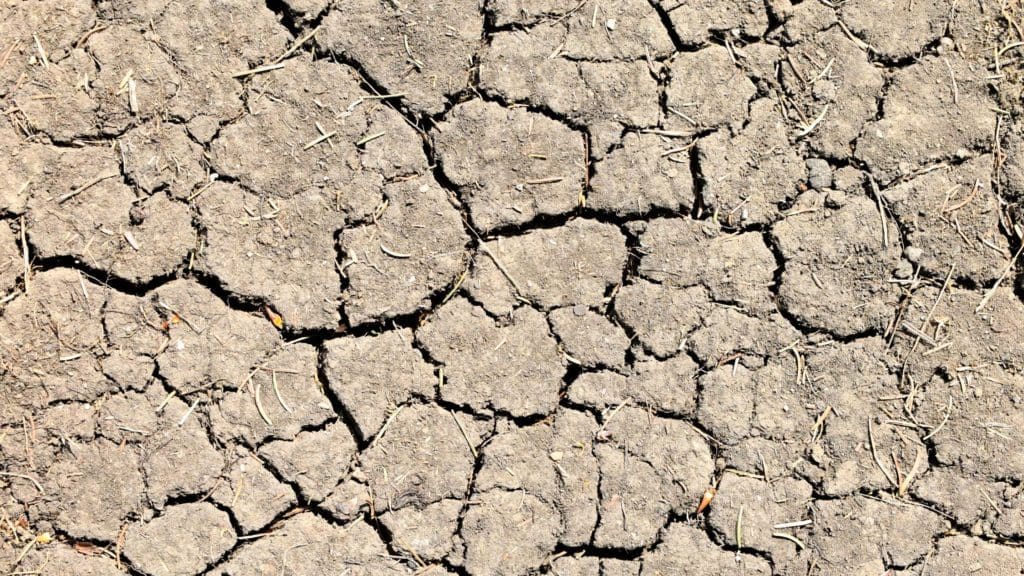Toprevent severe foundation damage and costly repairs, you need to be able to foresee the potential issues that seasonal changes could bring and take the necessary precautions on time. As foundation repair professionals, we’ve gathered below some useful information that can help you avoid foundation damage this summer. First, let’s take a look at the issues that dry weather could cause for a foundation in Houston.
How Dry Weather Can Affect Your Home’s Foundation
Dry weather can impact your foundation by negatively affecting the soil underneath it. Due to dry weather, the ground under your home tends to lose moisture and dry out. This will cause the soil to shrink and crack.Shrinkage is more problematic in soil with high clay content, like the soil in Houston. Compared to sandy soils, which offer better drainage, clay soils hold large amounts of water. When these soils dry out, the shrinkage and cracking are typically worse because of the initial water content. As a result, the clay soil in Houston usually develops large cracks and gaps during dry weather. What’s more, any cracks and gaps that develop around and underneath your foundation will expose more soil underneath your home to airflow. This will accelerate the drying and shrinkage of the soil, eventually causing more cracks and gaps to form.
Regardless of what type of foundation you have, whether it’s slab-on-grade or beam and pier, soil that is cracked basically means a less stable and less sturdysubgrade, which may no longer be able to hold up the structure above it. What’s more, an unstable subgrade will eventually cause your foundation to move unevenly. In time, this can lead to different structural problems within your home. Any gaps and cracks around the perimeter of your home will also allow rainwater to drain under your foundation, which may cause additional issues for your home.
To better understand how dry weather can affect both your foundation and home, let’s take a closer look at the issues that cracked soil could cause in slab-on-grade and beam and pier foundations.
Aslab-on-grade foundation, also called a slab foundation, can crack and collapse right above a void that has developed in the soil underneath it. This may cause damage to the floor as well as interior and/or exterior walls. In addition to the damage that a slab foundation could cause when it collapses, this type of foundation is quite difficult to repair. Because a slab foundation rests directly on the ground—which means that workers cannot access the area underneath. The technicians have to dig tunnels and install hydraulic jacks in order to lift it— a slab foundation is typically repaired by boring holes and installing piers through the slab.
Cracks and gaps occurring in clay soil may lead to all kinds of problems in apier and beam foundation as well. Any cracks and gaps that develop in the soil under this type of foundation may cause the piers and beams to move from their initial position. As a result, the slab could shift and crack, eventually contributing to foundation failure. Fixing the problems that occur in pier and beam foundations often involve tunneling under the foundation, installing hydraulic jacks, lifting the slab, and making the repairs required. Although these foundations are usually easier to fix compared to slab foundations, choosing the most appropriate repair method depends on the components affected and the extent of the damage.
As the Saying Goes, Prevention Is Better than the Cure
In an effort toprevent foundation damage, builders currently use thicker slabs and higher numbers of piers, which can reduce the stress on the soil by spreading out the total load of the home more efficiently. However, dry weather can still cause damage to slab-on-grade as well as beam and pier foundations.
The most effective way to prevent cracks and gaps from developing around and under your home is to water the ground around your foundation evenly and regularly during dry weather. Even if cracks have already formed in the soil, foundation, and/or walls of your home, applying water will keep the soil from drying further, which may stop the damage.
Although watering your foundation can prevent damage,hiring a professional is the only way to find out if your foundation has been affected by dry weather. Knowing that an experienced professional takes care of your foundation will also give you peace of mind so that you can enjoy a relaxing summer!



